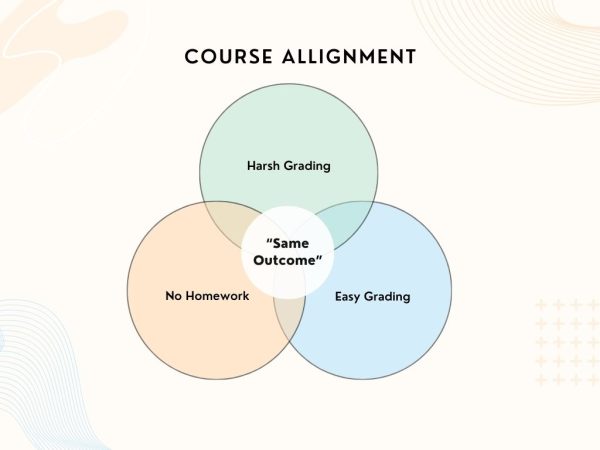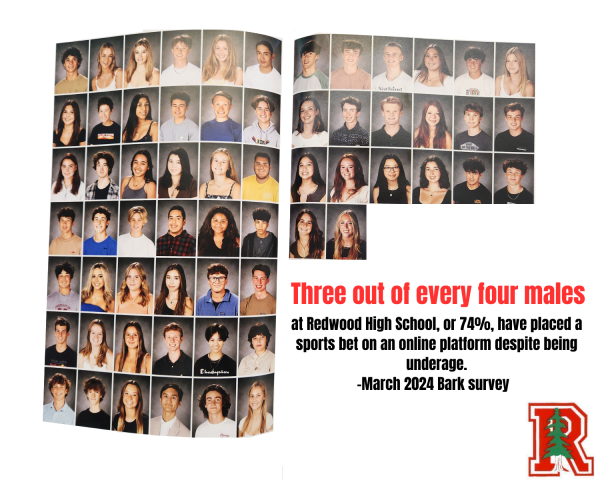First generation college-bound seniors and their supporters forge paths for the future
June 14, 2020
As incumbent and rising high school seniors traverse the multi-armed college admissions process, various daunting matters, including financial aid and acceptance likelihoods, can overwhelm and cloud the minds of students. The counsel of a parent or mentor who has undergone college admittance and education often carries immeasurable weight to said students, and can serve to ease looming doubts. Socioeconomic status can also contribute to the feasibility of a post-secondary education; affordability of college is often a factor that encourages attendance. Not all students carry such privileges, however.
For some of Redwood’s first-generation college-bound seniors, higher education was not always a tangible prospect, but the guidance of counselors and other figures worked to materialize it. Redwood’s resources in the field are plentiful and have helped countless students navigate their way through the uncertainties and complications that can present themselves amidst the application and admissions process. Regardless, the absence of experienced parents or guardians in such an undertaking can be both unnerving and disadvantageous.
This formidable drawback stood in front of senior Ricardo Viera throughout his admissions process, but did not render him incapable. In fact, it had quite the opposite effect.
“[The process] was kind of hard; I didn’t really have guidance because none of my family members have gone to college, so I couldn’t ask them for help. I was mainly [aided] by my AVID teacher and my counselor at Redwood,” Viera said. “It definitely made me more independent.”
Viera, attending and running cross country at Santa Rosa Junior College in the fall, stands amongst droves of other first-generation college-bound students proceeding on unfamiliar routes. As of 2015, some 1.46 million undergraduate students in the U.S. had parents that had not received a post-secondary education. This cohort is steadily downsizing, though; according to the U.S. Department of Education, the share of first-generation attendees decreased from 37 percent to 33 percent of all college students between 2000 and 2012. Of those millions of students, approximately one-half stem from low-income families, a 2007 report from the University of California, Los Angeles shows. Like those Viera relied on, there are several structures in place to ensure that future Redwood attendees can further their educations irrespective of socioeconomic status.
A major partner of the College & Career Center and counseling department is 10,000 Degrees, a nonprofit organization aimed at getting underprivileged high school students “to and through” institutions of higher education, according to its mission statement. Primarily, the group works with college aspirants in the Bay Area, and has a unique pool of students; 100 percent come from low-income backgrounds and 85 percent are first-generation college hopefuls.
As Director of Communications and Marketing, Alaina Yoakum sees the breadth of 10,000 Degrees’ impact from a distinctive view and attributes its extensive success to the dedication of its contributors and its hefty structure. Not only does the organization provide assistance along virtually all parts of the process, but it instills newfound hope in many of its students.
“Some students from low-income households automatically assume they can’t afford college, and so they give up right there; that’s where we come in. We believe in the potential of all students, so we don’t have a grade point average requirement to participate in our programs, and that’s huge,” Yoakum said.
In some cases, the program plants seeds at the early roots of education in hopes that they will be sown in productive and beneficial ways further down students’ paths.

“The partnerships we have in place [in areas like] Marin City at the Bayside Martin Luther King, Jr. middle school help with advocacy and college awareness; starting in eighth grade, we’re introducing the idea of college to [students] and showing them it’s not out of reach,” Yoakum said.
Sisters and Redwood alumnae Ana and Elizabeth Anguiano are quite knowledgeable about the extent of the organization’s impact; not only did they make use of it during their time in high school, but both hold positions there now. Recent graduates of the University of California, Merced, the two work as fellows to countless students, providing comprehensive encouragement in terms of logistical steps and emotional understanding. The organization’s fellowship program matches recent college graduates like the Anguiano sisters with school advisors and students, working to impart personal experience in the form of competent guidance.
To Ana, who collaborates with seniors at Balboa High School in San Francisco, 10,000 Degrees stands an invaluable resource to this day.
“Speaking from my experience, being able to know where to start and just having a support system that I trusted and that had my best interest [in mind]…was such a positive experience,” Ana said. “And that’s pretty much what we try to do with our students continuously—just give them all the resources and information that they need so that they can be successful students and ultimately end up where they’ll be happy.”
That sense of self-assurance and support provided at Redwood was exactly what drew her back in after graduating college.
“I always knew I liked working with other students and helping them, so I felt like 10,000 Degrees would be able to provide me with that opportunity to give back to the community that once gave so much to me. It’s been very rewarding in a sense to be able to continue to support students and their aspirations for [both] their [personal] and educational lives,” Ana said.
For college aspirations to come into fruition is gratifying on both ends of those involved in the lengthy process, especially in the cases of first-generation students. The long-term effects on future generations can be equally momentous; Viera hopes his next steps extend a pathway of opportunity for other family members.
“I just recently started really thinking about it, and [going to college] means a lot. Hopefully, my brothers can follow in those same footsteps,” Viera said.






















